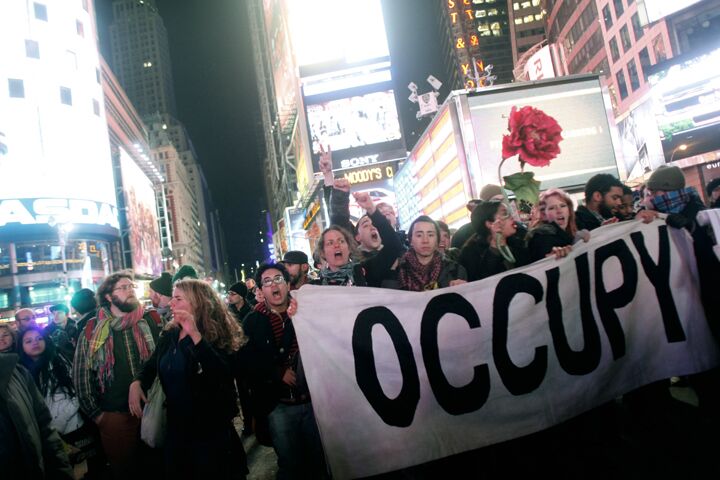
Occupy Protests Cost Cash-Strapped Cities Millions
Over the past three months, the nationwide “Occupy” protests that have sprung up in most major U.S. cities have cost local taxpayers at least $13 million, according to a survey by the Associated Press.
Actually, the total cost of the protests is likely much higher than this figure due to the fact that the AP only surveyed the cost of police overtime and other municipal services in 18 major cities. The survey did not even attempt to tally the cost of lost business revenue or the cost of property damage due to the protests.
After Occupy protesters shut down the Port of Oakland on December 12, city officials estimated the total economic damage to their city alone was about $2.4 million. Much of this economic damage affected the very workers whom the protesters claim to be helping.
“In my 11 months in office, I have worked to bring jobs and investment to the Port of Oakland,” said Oakland Mayor Jean Quan. “Thousands of people work at the Port of Oakland every day. Thousands more in agriculture and other industries also depend on the Port of Oakland for their daily wages. We urge the demonstrators to respect the rights of the 99 percent working at the Port and to keep their protests peaceful.”
Los Angeles Mayor Antonio Villaraigosa this week called for budget cuts to offset the cost of the damage done to his city by the Occupy protesters. According to city agencies, the total cost to the city will exceed $1 million. Approximately $400,000 will be needed to cover damage done to the city park where the protesters camped and another $700,000 will be needed to cover the cost of police action. Additional expenses are attributed to hauling away debris and cleaning up graffiti.
A report sent to Vancouver City Council Monday by city manager Penny Ballem and her deputy, Sadhu Johnston, puts the cost of the Vancouver, Canada, protest at almost $1 million. The report compares this expenditure with other North American cities, including a $1.4 million price tag in Portland and a $625,000 price tag in Seattle.
Ironically, a protest movement that sprung up to demonstrate against joblessness and poverty is only making matters worse. Last November, protest organizers tried to arrange a boycott against all publicly traded retailers on Black Friday. Then, earlier this month, protesters tried to shut down ports along the entire West Coast.
The goal of both antics was to impact the profits of major corporations during the holiday season. Such methods are not just anti-Wall Street; they are anti-trade and anti-business. In the end, such a strategy of shutting down businesses and harming profits will harm the average American worker far more than it will harm Wall Street bigwigs.
Now in their third month, the Occupy protests seem to be growing in strength despite, or perhaps because of, police action taken against them. Such civil unrest can only exacerbate America’s economic decline as cash-strapped cities and ailing businesses struggle against protesters who want them to fail.
To understand the possible implications of the burgeoning unrest in the United States, read Trumpet columnist Robert Morley’s analysis “The Riots Will Come.”
